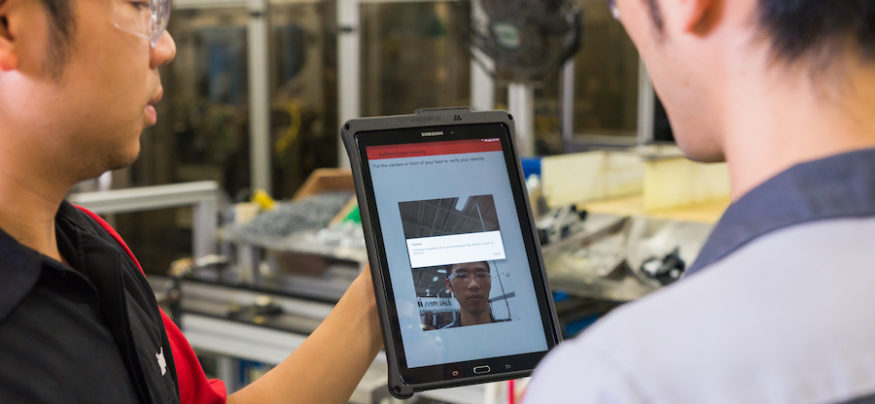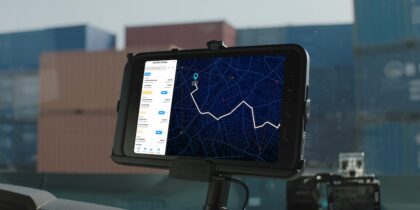The customer is always right — and in today’s age of instant gratification and personalization, the customer can also be pretty demanding. Manufacturers that don’t comply with exacting end-user specifications and develop a customer-centric approach to manufacturing technology risk losing business to more nimble competitors. Given the significant cost of customer acquisition in the first place, this is a game today’s manufacturers can’t afford to sit out.
When manufacturers utilize mobility across their business processes, they gain a competitive advantage in customer relations management by improving transparency at every stage: supply chain management, manufacturing and delivery of finished goods. A mobile device loaded with the manufacturing execution system can compute the status of the production cycle at every step from assembly to finish, and determine which assets are being deployed where in the supply chain. Plus, today’s mobile devices are also edge computing nodes that can process data generated by IoT-enabled devices to help production floor employees make data-enabled decisions.
The use of mobile devices makes manufacturing more agile and responsive to ever-changing customer demands and production challenges. The increase in on-time delivery rate, the reduction of employee errors, the traceability of goods and services — these are just a few of the many tasks that mobile can optimize.
The essential promise of mobility in manufacturing is that it can break down silos between the three pillars on which a company’s manufacturing system rests: enterprise resource planning (ERP), customer relations management (CRM) and supply chains. The next industrial revolution — Industry 4.0 — envisions smart factories generating enormous amounts of data from machine assets, material handling systems and supply chain logistics. Mobile devices optimize the end points, providing an agile means of gathering and processing data to revolutionize traditional top-down manufacturing hierarchies.
The CRM of Tomorrow
In Industry 4.0, the advantage goes to companies that leverage the right manufacturing technology to gather and analyze data and keep production processes humming and communicate proactively with customers. Ruggedized mobile devices such as the Samsung Tab Active2 keep the smart factory running and support on-time delivery.
Advance Your Manufacturing Digital Transformation
Get your free report on driving differentiation by keeping customer experience at the center. Download Now
CRM is a central focus of Industry 4.0. Production managers can analyze customer data to optimize manufacturing demand-flow scheduling systems and efficiently drive what, when and how they manufacture. And while the manufacturing industry is typically ranked only fourth in average cost per lead at $235, customer retention is key to keeping churn rates manageable and improving the bottom line. Companies can strengthen their relationships using technology that makes processes transparent and efficient.
For instance, was there a problem with shipping? Mobile scanning data from the warehouse, stored in a central repository (and quite possibly even made available to the customer through an app) could pinpoint the error. Product defect? Mobile devices conducting regular scans of Internet of Things (IoT) data from machinery can minimize in-plant defect rates. Pinpointing and resolving problems with such granularity gives customers the visibility and responsiveness they demand.
Mobile Task Management and Scanning
Most companies have various degrees of automation already in place to optimize capacity utilization and shorten cycle times. Today’s ERP systems can be tailored for the manufacturing industry and are ripe for third-party add-on technologies such as mobile. Piggybacking on such manufacturing technology, companies can essentially go from piecemeal, ad-hoc automation to truly agile smart factories that deliver complete manufacturing cycle efficiencies.
Mobile solutions such as the Tab Active2 enhance data exchange on the production floor, enabling rapid troubleshooting and resolution. Case in point: by outfitting every inventory asset with barcodes and using mobile devices with scanning capability, employees can track production processes in real time and determine machine availability rate.
On the production floor, mobile scanners and tablets play a critical role in cyberphysical control of assets. For example, mobile devices with computing power can read data from humidity and temperature sensors in real time and signal potential trouble so that downtime is minimized. Such livestream analysis empowers manufacturers to be more responsive to customer needs and demands.
A recent Forrester Research report shows that manufacturing lags other industries in making customer experience improvement a critical priority. By centering production processes on the customer, companies have the golden opportunity to flip the narrative. By using mobility in manufacturing, they can gain a competitive advantage in a crowded landscape.
Learn more about the advantages of using rugged devices in manufacturing.









